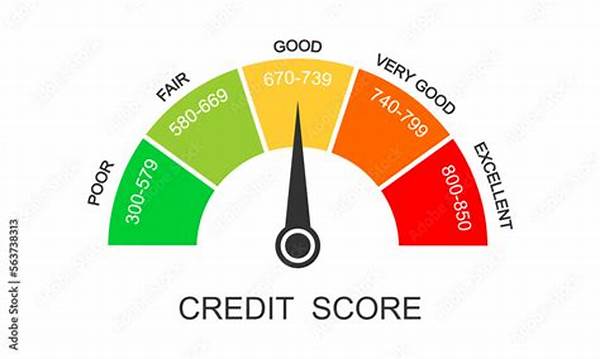The Unexpected Link: How Your Credit Score Directly Affects Your Home Insurance Premiums!
- Navigating Your Credit Score for Better Insurance Rates
- Discussion: Cracking the Code on Credit Scores and Insurance
- Goals Linked to Credit Score and Insurance
- Introduction: The Financial Web You Didn’t Know Existed
- Decoding the Premium-Credit Connection
- Points on Credit Score and Premiums
- Description: Navigating Financial Waters
Imagine a world where the digits of your credit score have more power than just determining your loan approvals. Welcome to reality, where your credit score has the unexpected link: how your credit score directly affects your home insurance premiums! Yes, you read that correctly. Your credit score is not just a number that banks love to scrutinize; it’s also a figure that insurance companies closely monitor to decide how much they should charge you for home insurance.
Read More : Top Mistakes That Destroy Your Credit Score
Your credit score’s influence on home insurance premiums is a compelling yet often overlooked story. Indeed, many people are surprised to learn how their financial habits related to credit can tangibly impact the cost of insuring their homes. Insurance companies have conducted thorough investigations and analyses, discovering a correlation between credit scores and claims likelihood. The findings are remarkable: individuals with lower credit scores are statistically more likely to file insurance claims. Even though this may sound like a plot twist from a financial mystery novel, it has a very rational explanation.
The rationale is that individuals who manage their credit well tend to manage other aspects of their lives with similar diligence. Insurance companies argue that someone who manages their finances responsibly is less likely to file frivolous claims, thereby presenting a lower risk. On the flip side, if your credit score is less than stellar, insurers might interpret this as an indicator of potential risk, prompting them to hedge their bets by charging higher premiums. This is where the underrated power of credit awareness and management comes to light, emphasizing how the unexpected link: how your credit score directly affects your home insurance premiums can play a significant role in your financial future.
In this blog, we’ll delve deeper into this unique connection between credit scores and home insurance, exploring how you can protect your wallet from surprise hikes in premiums and ultimately become a savvy consumer in managing your insurance needs.
Navigating Your Credit Score for Better Insurance Rates
Understanding the complex relationship between your credit score and home insurance premiums can be a game-changer in reducing annual expenses. Start with knowing your score and regularly monitoring it for improvements. Take action where needed; whether it’s paying down debt or fixing errors on your credit report, every step helps in shaving dollars off your insurance premiums.
—
Discussion: Cracking the Code on Credit Scores and Insurance
The relationship between credit scores and insurance premiums often feels like a hidden code—an enigmatic formula that dictates how much you’ll pay. For many, this discovery is akin to unearthing a long-lost clue in a detective story. While credit scores are conventionally associated with loans and credit cards, it’s their unseen impact on home insurance that adds an unexpected twist to personal finance.
The Credit Score Puzzle: How Does It Impact Insurance?
To unravel this mystery, we first need to understand why insurers care about a credit score that was, at least originally, designed to measure creditworthiness. The theory, supported by insurance industry research, argues that those with higher credit scores are generally perceived as lower risk. They are deemed responsible enough to maintain a steady credit history, suggesting a lesser likelihood of filing frequent claims. Thus, insurers find the unexpected link: how your credit score directly affects your home insurance premiums! This correlation serves as an indicator, giving insurers a statistical tool for calculating risk profiles.
But what happens when credit scores aren’t reflective of an individual’s current financial behavior? Critics argue that a credit score may not accurately reflect an individual’s current lifestyle changes or responsibility. For example, life events like divorce or medical emergencies can drastically affect one’s credit score without necessarily increasing their insurance risk. Therefore, it’s important for consumers to question and challenge how heavily their credit score weighs in on insurance calculations.
The Plan of Action: Improve, Dispute, and Ask
So, what’s a homeowner to do? Start by improving your credit score through mindful financial management. Dispute inaccuracies on your credit report and ensure it reflects your true financial behavior. Don’t shy away from reaching out to insurance companies with questions about how heavily they weigh credit scores in pricing policies. Many insurers may be willing to discuss alternatives that better suit your situation, potentially offering discounts or rewards for loyal customers with improving credit profiles.
The unexpected link: how your credit score directly affects your home insurance premiums provides both a challenge and an opportunity. With informed action, homeowners can navigate this system more effectively, ensuring their insurance premiums accurately reflect their real financial risk.
—
Goals Linked to Credit Score and Insurance
Introduction: The Financial Web You Didn’t Know Existed
In the fast-paced world of personal finance, most people grapple with managing bills, staying on top of loans, and planning for future investments. Yet, amid the chaos, there lurks an unsung hero—or villain, depending on your perspective—the credit score. This number, meticulously fashioned by financial institutions, plays Houdini-like tricks on our lives, sometimes collapsing or expanding opportunities faster than you can say “approved.” But beyond the credit card limits and loan approvals, there’s another domain where the unexpected link: how your credit score directly affects your home insurance premiums comes into play.
Here’s the twist: insurance companies have woven credit scores into their pricing algorithms. It’s akin to finding out your go-to coffee shop is suddenly charging more because your caffeine intake appears too high-risk. This amalgamation of scoring and insuring may appear as a perplexing mix, yet it serves a calculated purpose in the risk assessment sphere. Understanding this linkage isn’t just about being a savvy consumer; it’s about reclaiming control over how your finances shape every aspect of your life.
The intrigue lies in how these numbers—seemingly autonomous—intertwine with unpredictable precision. An impressive credit score can lead to lower premiums, while a less-than-ideal number might inflate what you pay for home protection. Here’s where the real power of information becomes evident; equipping yourself with the knowledge of how these connections work can result in substantial cost savings.
In this enlightening journey, we will uncover the origins, effects, and steps needed to navigate this intricate web of financial relationships. Join us as we deconstruct the unexpected link: how your credit score directly affects your home insurance premiums, and emerge more informed, more empowered, and perhaps, more financially secure.
Decoding the Premium-Credit Connection
It’s an enlightening process when homeowners truly understand how insurance companies calculate premiums based on credit scores. Insurance premium pricing can feel like an arcane science, but at its core, it’s driven by a comparative analysis of risk. Your credit score serves as one part of an intricate algorithm, ultimately determining how much your insurance will set you back annually.
The Tactical Approach to Managing Costs
Remember, while the relationship between credit scores and insurance premiums might seem challenging, it isn’t a labyrinth without an exit strategy. By embracing sound financial habits and being proactive in managing credit responsibilities, you’ll not only improve your credit score but also potentially lower your insurance costs in the long run. Your journey towards better premiums and financial peace of mind starts here, with the unexpected link: how your credit score directly affects your home insurance premiums as your guide.
—
Points on Credit Score and Premiums
Description: Navigating Financial Waters
In today’s financial seascape, navigating through the tides of credit scores and insurance can feel like setting sail in uncharted waters. However, equipping oneself with the right knowledge serves as a compass through the fog. A credit score, while an established metric of creditworthiness, holds a more expansive role encompassing home insurance, indicating it’s not a singular tool but a part of a broader financial symphony.
The unexpected link: how your credit score directly affects your home insurance premiums emphasizes the importance of understanding our financial narratives. It’s a call to action, an invitation to engage more deeply with the numbers that, albeit silently, echo through every monetary decision we make. As we break down these connections, the aim is to inspire a transformation from financial survival to strategic living, where every decision is informed, empowered, and intentional.




